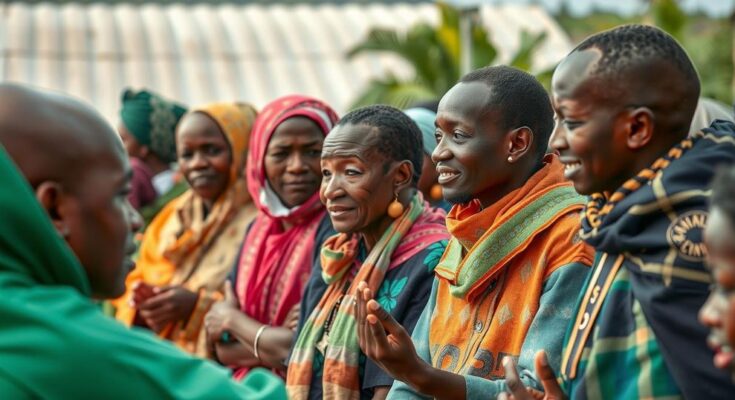The province of Ituri, DRC, has experienced prolonged inter-ethnic conflict primarily between the Lendu and Hema communities. Despite ongoing violence rooted in competition over land and resources, local peace initiatives demonstrate community resilience. Government and international strategies focus on military action, disarmament, and socio-economic integration. However, trust in state institutions and ethnic divisions remain challenges. Women’s groups and diaspora support play critical roles in promoting stability and dialogue, paving the way for a hopeful future.
The province of Ituri in the Democratic Republic of Congo has faced over a decade of severe inter-ethnic violence, predominantly involving the Lendu and Hema communities. This conflict has been driven by historical rivalries over land, complicated by the area’s rich mineral resources which have attracted exploitative interests. Despite the intense violence, various local initiatives aimed at fostering reconciliation illustrate the resilience of the community. Individual stories such as that of Alphonsine Cecile, a former combatant, highlight the desire for peace and the transformative power of engagement in local dialogue and development projects.
In recent years, the Congolese government and international entities have initiated multi-faceted strategies to restore security and foster community rebuilding. Key actions include military offensives against armed groups, disarmament initiatives, and socio-economic reintegration programs aimed at ex-combatants. Yet, underlying issues, including ethnic tensions and a lack of trust in state institutions, continue to hinder progress towards lasting peace. Efforts by local organizations and youth groups promoting inter-community dialogue are critical but require enhanced support from both state and international actors.
Amid considerable challenges, compelling examples of community solidarity are emerging. Initiatives such as agricultural cooperatives and women’s groups play significant roles in reconciliation efforts. The active involvement of the Iturian diaspora also provides vital support for development projects. For Ituri to transition from a cycle of violence to an enviable state of peace, a cohesive approach involving transitional justice and robust state authority is imperative. This comprehensive effort, combined with transparent resource management, holds the potential to transform Ituri into a beacon of resilience and peaceful coexistence.
The inter-ethnic conflict in Ituri, DRC, has its roots in historical disputes between agricultural and pastoral communities, which have been severely exacerbated by socio-political instability and the region’s mineral wealth. The conflicts have led to grave humanitarian crises, impacting thousands while fuelling the persistence of violence. However, this backdrop of strife has also catalyzed numerous grassroots peace-building initiatives aimed at fostering trust and community solidarity amidst ongoing challenges.
In conclusion, the journey towards peace in Ituri is fraught with obstacles, yet the determination of its citizens, exemplified through various local initiatives and community dialogues, sparks hope for a brighter future. With continued support from both national authorities and the international community, Ituri can gradually shift from a history of conflict to a model of peaceful coexistence and resilience in Central Africa.
Original Source: peacenews.com




